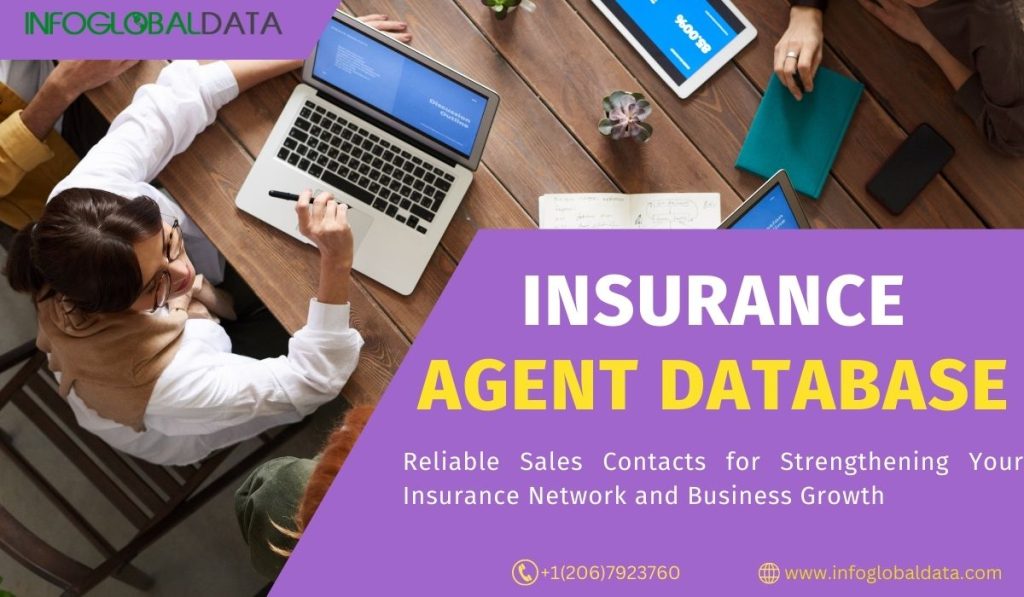
In the digital age, data has become a crucial asset for businesses, including insurance agencies. An insurance agent database is a comprehensive collection of client information, policy details, leads, and other critical data that empowers agents to streamline their operations, enhance customer service, and drive business growth. However, with various database options available, it can be challenging to choose the right one for your insurance business. Here we explore key factors to consider when selecting the right insurance agent database to meet your specific business needs.
Scalability and Flexibility
When choosing a database of insurance agents, consider the scalability and flexibility it offers. As your insurance agency grows, your data requirements will also increase. Ensure that the database can handle a growing volume of data without compromising performance or stability.
Additionally, the database should be flexible enough to accommodate changes in your business processes and data structures. Insurance agencies often adapt their strategies and services over time, so the database must be able to support these evolutions without causing disruptions.
Data Security and Compliance
Data security is paramount for insurance agencies, as they deal with sensitive customer information, including personal details and financial data. Choose a database that offers robust data encryption, user authentication, and access control mechanisms to protect client information from unauthorized access or cyber threats.
Moreover, consider databases that comply with relevant data protection regulations, such as GDPR (General Data Protection Regulation) or CCPA (California Consumer Privacy Act). Compliance with these regulations ensures that your agency handles customer data responsibly and avoids potential legal issues.
Integration Capabilities
Insurance agencies often utilize various software solutions to manage different aspects of their operations, such as customer relationship management (CRM) tools, policy management systems, and accounting software. Ensure that the database you choose can seamlessly integrate with these existing systems to avoid data silos and streamline data sharing across platforms.
Integration capabilities enhance operational efficiency and enable a unified view of customer data, allowing agents to make better-informed decisions.
User-Friendly Interface
A user-friendly database interface is essential to ensure that your agents can easily access, input, and manage data. The interface should be intuitive and straightforward, reducing the learning curve for new employees and increasing productivity.
An easy-to-navigate interface also minimizes the risk of data entry errors and ensures that your team can efficiently handle customer inquiries and policy updates.
Reporting and Analytics
Insights derived from data analytics can significantly impact your insurance agency’s decision-making process. Choose a database that offers robust reporting and analytics capabilities, allowing you to generate valuable insights from your data.
Having access to real-time reports and analytics enables you to identify trends, track key performance indicators (KPIs), and make data-driven decisions to optimize your agency’s performance.
Mobile Accessibility
In today’s mobile-driven world, mobile accessibility is crucial for insurance agents who need to access customer information while on the go. Look for databases that offer mobile applications or responsive web interfaces, enabling agents to access and update data from their smartphones or tablets.
Mobile accessibility enhances the agility and responsiveness of your agency, allowing agents to provide seamless customer service, even outside the office.
Backup and Recovery
Data loss can have severe consequences for insurance agencies, leading to disruptions in service and potential reputational damage. Choose a database that provides robust backup and recovery mechanisms to ensure the safety and continuity of your data.
Regular data backups, along with disaster recovery plans, safeguard your agency against unexpected data loss events, such as hardware failures or cyberattacks.
Vendor Support and Updates
Select a database vendor that offers reliable customer support and regular updates. The database vendor should be responsive to any technical issues and provide timely assistance when needed.
Regular updates and enhancements to the database ensure that your agency benefits from the latest features, security patches, and improvements to the system’s performance.
Cost and Return on Investment (ROI)
Consider the total cost of ownership (TCO) when evaluating different database options. While it’s essential to invest in a high-quality database that meets your needs, you should also assess the ROI the database can provide.
A database that enhances operational efficiency, improves customer service, and drives business growth can generate significant returns on your investment over time.
Trial Period and User Feedback
Before committing to a specific insurance agents database, take advantage of any trial periods or demos offered by the vendors. This allows you and your team to experience the database’s functionalities firsthand and determine if it aligns with your agency’s requirements.
Additionally, seek feedback from other insurance agencies or industry professionals who have experience with the database you’re considering. User testimonials and reviews can provide valuable insights into the database’s strengths and weaknesses.
Conclusion
Choosing the right insurance agency database is a critical decision for your agency’s success and efficiency. By carefully considering factors such as scalability, data security, integration capabilities, user-friendliness, and reporting features, you can find a database that aligns with your specific business needs.
A robust and reliable insurance agent database empowers your agents to provide exceptional customer service, make data-driven decisions, and drive business growth, positioning your insurance agency for long-term success in a competitive market.